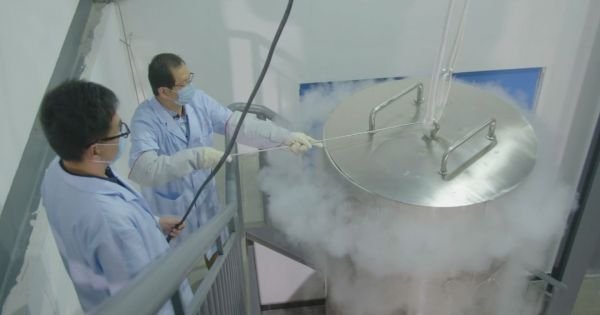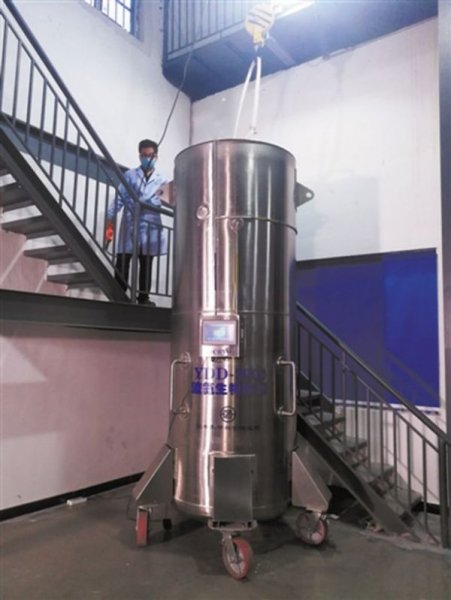For The First Time Ever, A Woman In China Was Cryogenically Frozen
Tags: opinion

By Amanda Froelich Truth Theory
History was recently made in China, where a woman was cryogenically frozen for the first time. As a result of the development, researchers are questioning whether or not “deep freezing” a recently-deceased patient — with the ultimate goal of reviving them once medical advances are made — could become a feasible option for the masses in the future.
Cryonics is the practice of deep-freezing recently deceased bodies (or possibly the brains of those who have recently died) with the ultimate goal of reviving them. Though the field has largely been a mix of speculative rumors and fictional accounts (Batman’s Iceman) in the past, recent progress has inspired some to believe in the possibilities.
Chinese citizen Zhan Wenlian, who died of lung cancer at the age of 49, was “volunteered” for the cryonic procedure by her husband Gui Junmin. Reportedly, both he and his late wife wanted to donate her body to science, as they were passionate about giving “back to society.” Reportedly, he pitched the idea of cryonics with it being described as a “life preservation project.”
As Futurism reports, cryonics is all about timing. Additionally, the term “freezing” is somewhat misleading, as what actually happens is a rapid cooling process that keeps the body preserved in a chemical cocktail of preservatives and antifreeze agents. The goal is to keep the body in a stable state where it won’t decay as well as won’t suffer damage from being stored at low temperatures (quite possibly for a long period of time). This process is what happened to Wenlian’s body.
The Chinese woman’s carcass now rests facedown in 2,000 liters of liquid nitrogen. The procedure was completed at the Yinfeng Biological Group in Jinan. The Yinfeng Biological Group, Qilu Hospital Shandong University and consultants from Alcor Life Extension Foundation — a nonprofit cryonics company based in the United States — all collaborated on the trial.
Now that Wenlian is in a deep freeze, so to speak, scientists are asking some big questions. For instance, is the experiment’s sole purpose to help us better understand human biology, or could cryonics one day become a feasible option for many? Of course, the project is also raising ethical and spiritual concerns.
Because cryonics assumes death is a continuing process and caters to the possibility of “dying” being reversed, one has to question whether or not waking someone up after they’ve been frozen for a time is even possible. Additionally, it is impossible not to ask, “Does the soul leave the body after death?” Finally, will humanity’s limited understanding on human biology ultimately be what prevents our species from mastering cryogenics?

Image Credit: AsiaWire
Undoubtedly, more research needs to be conducted. And, it might even be hundreds of years before answers (to any of these questions) are declared. For the time being, humans who exist in the year 2017 can speculate on the outcome of cryonics and the ethical repercussions of attempting to keep a body or soul alive longer than nature intended.
Read more: How Complaining Rewires Your Brain For Negativity (And How To Break The Habit)
THIS ARTICLE IS OFFERED UNDER CREATIVE COMMONS LICENSE. IT’S OKAY TO REPUBLISH IT ANYWHERE AS LONG AS ATTRIBUTION BIO IS INCLUDED AND ALL LINKS REMAIN INTACT.
I am Luke Miller, content manager at Truth Theory and creator of Potential For Change. I like to blend psychology and spirituality to help you create more happiness in your life.Grab a copy of my free 33 Page Illustrated eBook- Psychology Meets Spirituality- Secrets To A Supercharged Life You Control Here

Leave Comment: